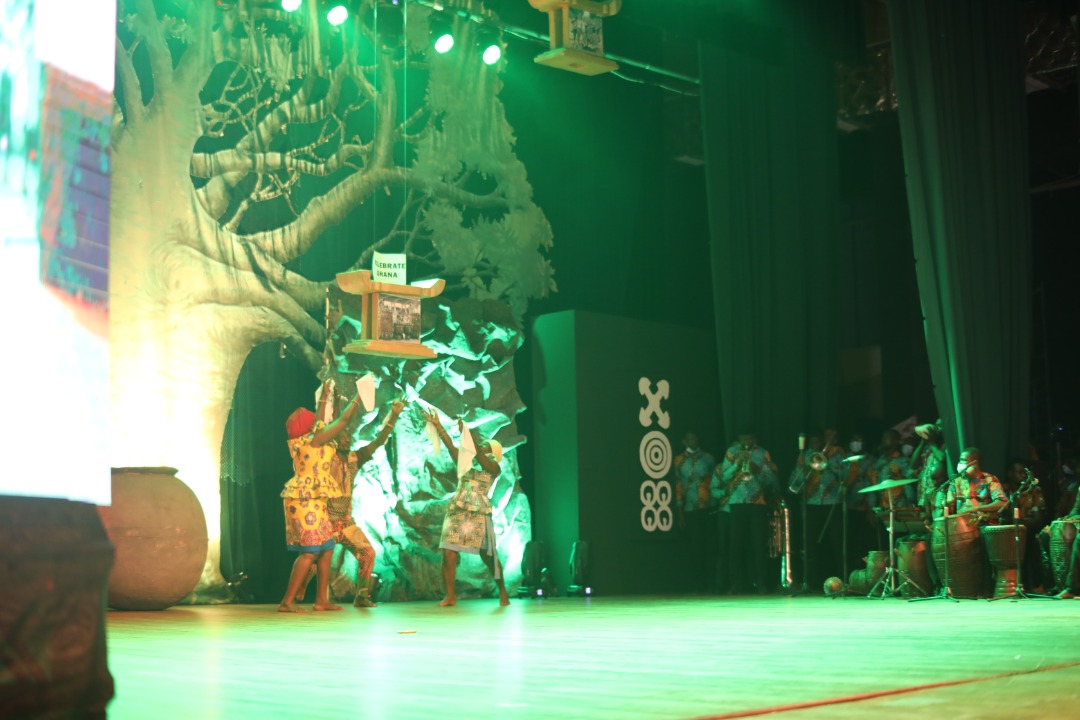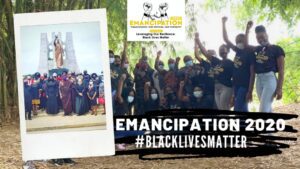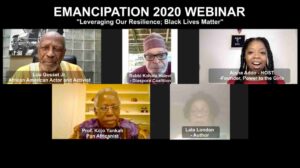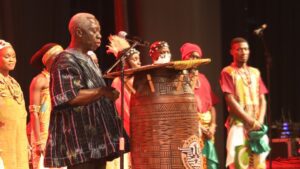The official unveiling of the 7 pillars for the ‘Beyond the Return campaign was on the evening of Wednesday 9th September at the National Theatre. It was a night filled with a
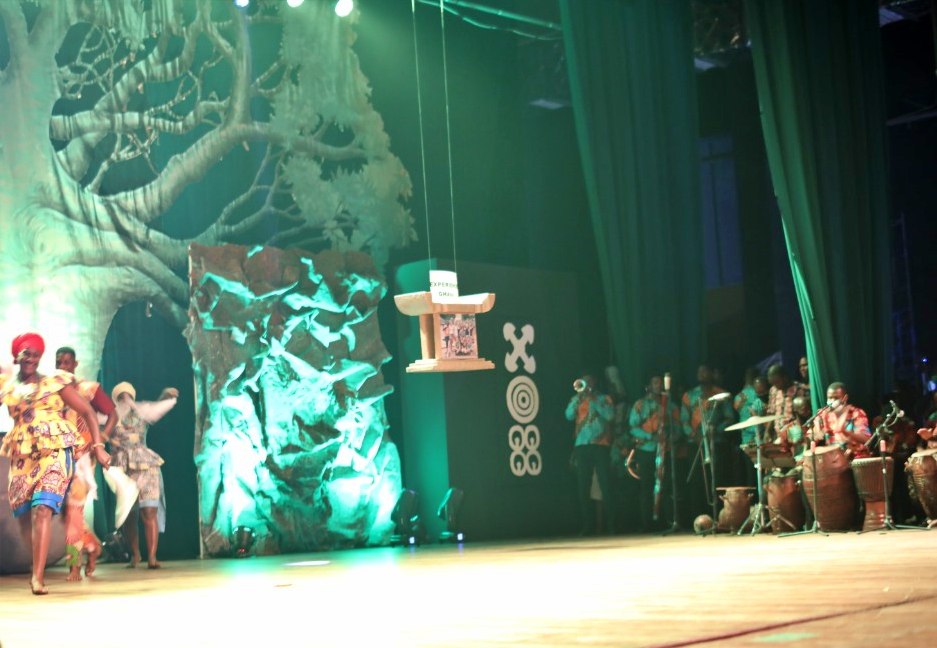
‘There were seven pillars unveiled by the Senior Minister, Yaw Osafo-Maafo. Each of them represents a key component to what ‘Beyond the Return will work towards building over the next 10 years known as ‘A Decade of African Renaissance’. The seven pillars unveiled are Experience Ghana, Invest in Ghana, Diaspora Pathway to Ghana, Celebrate Ghana, Brand Ghana, Give Back Ghana
The event’s theatrical interpretation of the pillars was majestic and perfectly aligned with Ghana’s history of storytelling and rooted in the core values of tradition in the country’s culture.
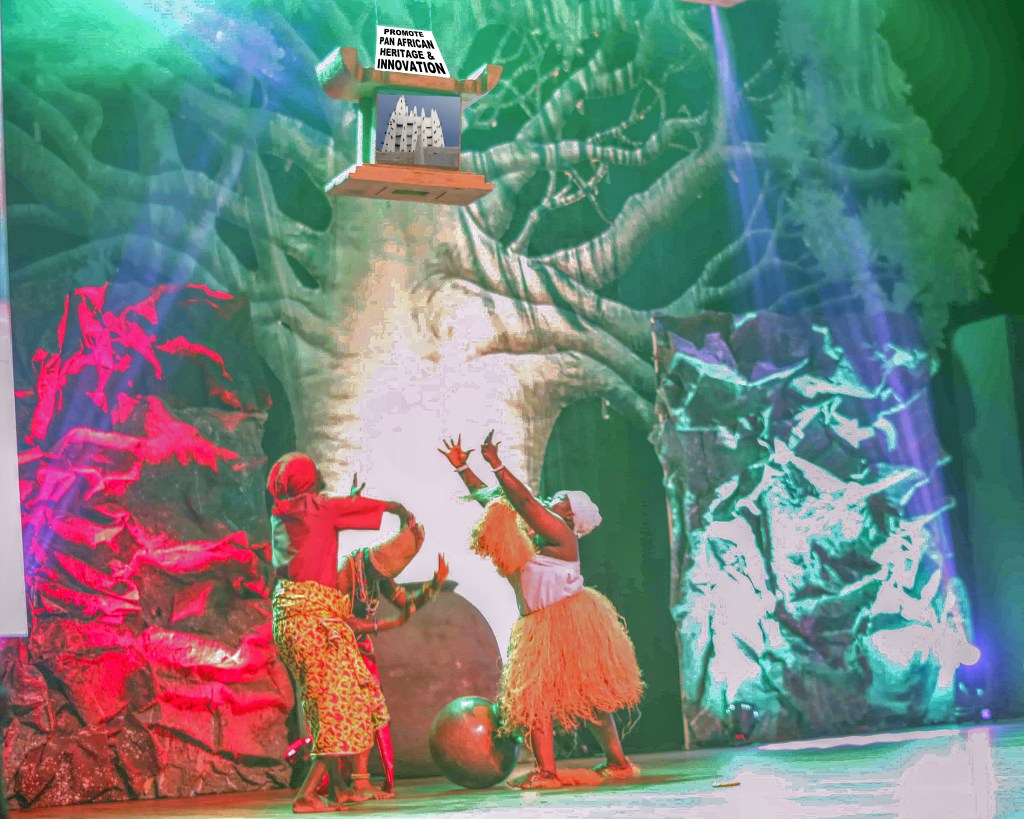
Inspired by the legend of Okomfo Anokye, one by one, each pillar came down from the skies in structures that replicated the ‘Golden Stool’. Performers danced and reached for the sky as each stool representing a pillar slowly descended. Amy Frimpong, Executive Director of the National Theatre explained that “The stool has a place in every household, every tribe has a stool that represents the culture of the people. We wanted to present the performance in the form of a story.” Ghanaian traditions are filled with storytelling in villages that took place sitting under a tree. This was replicated in the set design as a large tree became centre-stage and was the backdrop as each pillar descended. Adinkra symbols were also incorporated into the set details.
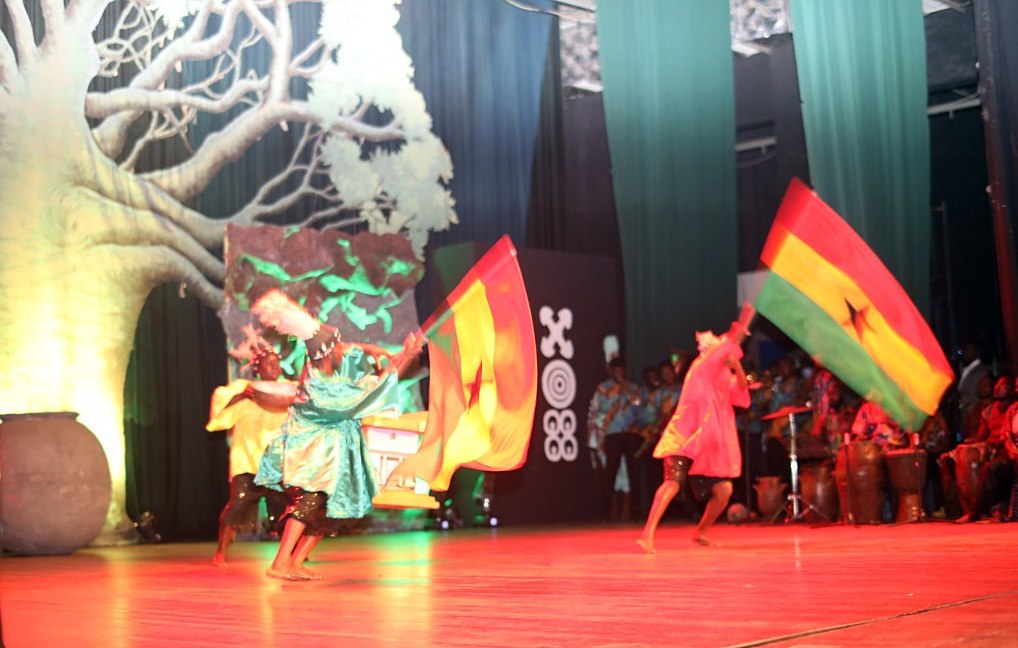
The symbolic performance unveiling each pillar began with dancers walking in a circle and raising the Ghana flag to the skies while one dancer lifted a calabash. It was a symbolic call which brought down the first stool representing the pillar for ‘Pathway to Ghana’, perhaps the most important for our diaspora community as they seek to return home to the motherland. As the pillar hung from the heavens in front of the tree, new dancers would come on stage continuing performing in ways that represented aspects of Ghana’s culture with dances from the various regions. Music throughout the performances was by Ghana’s National Symphony Orchestra. “We had them play patriotic music that was from Ghanaian composers,” Ms. Frimpong said. “That was very important for us.”
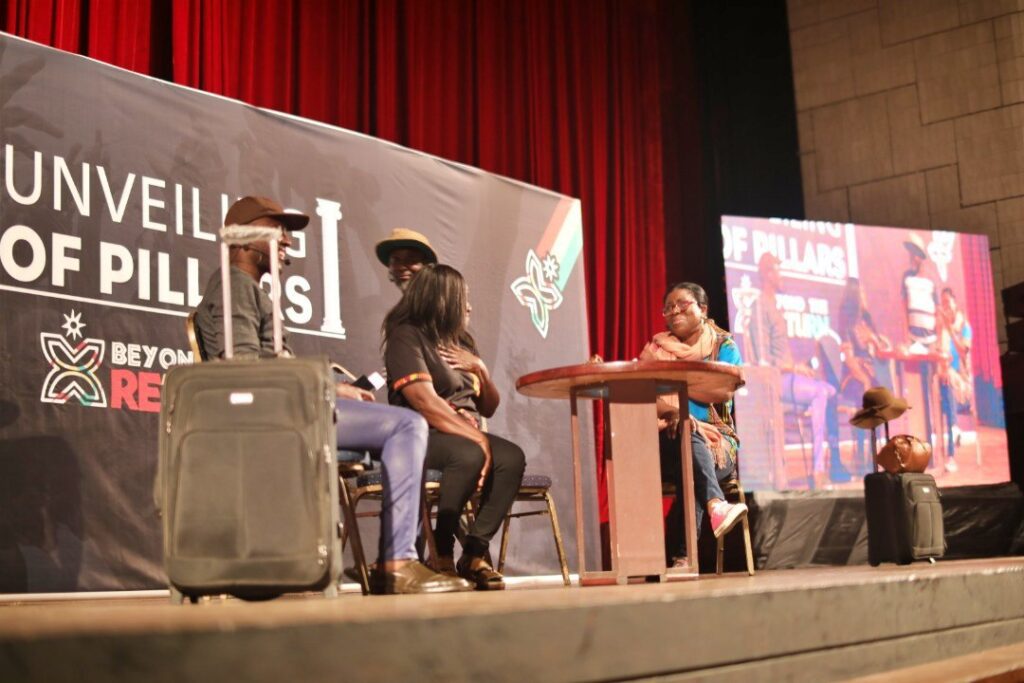
She further explained why they used the stools saying that in Ghanaian culture, when someone comes to your house you always give them a place to sit. The stools in each pillar symbolize a family offering you a seat, a place in their home. The symbolism in this was extremely important because Beyond the Return is about building bridges and connecting with our diaspora community. Essentially Ghana, is calling our brothers and sisters to come home and take a seat.
Members of the diaspora community were happy to be among those attending the historic event which unveiled Ghana’s plans for the next decade. They came dressed in African inspired dresses, smocks, headwraps and Kente. Many participated in the Year of Return activities and were anticipating what was in store for the unveiling. Ambassador Erieka Bennett, Head of Missions of Diaspora African Forum was there and said she was happy with the direction this new Beyond the Return project is headed.
Beyond the Return is the follow-up to last year’s successful ‘Year of Return’ campaign that invited the global African diaspora to visit Ghana and experience our country’s history, heritage, and culture. The year commemorated the 400-year anniversary of the first documented ship of enslaved Africans to arrive in Virginia, USA.
Tens of thousands travelled to Ghana from the diaspora seeking to reconnect with their African roots, learn the history and experience the country where their ancestors may have come from. Beyond the Return, seeks to build deeper ties with the diaspora community. Through relationships and an emphasis on heritage, culture, and a pathway to citizenship. During the pillars unveiling ceremony, the Minister of Tourism Arts & Culture, Barbara Oteng-Gyasi, said that the government was working on homeland legislation that would help support the process of citizenship sought after by so many in the diaspora.




